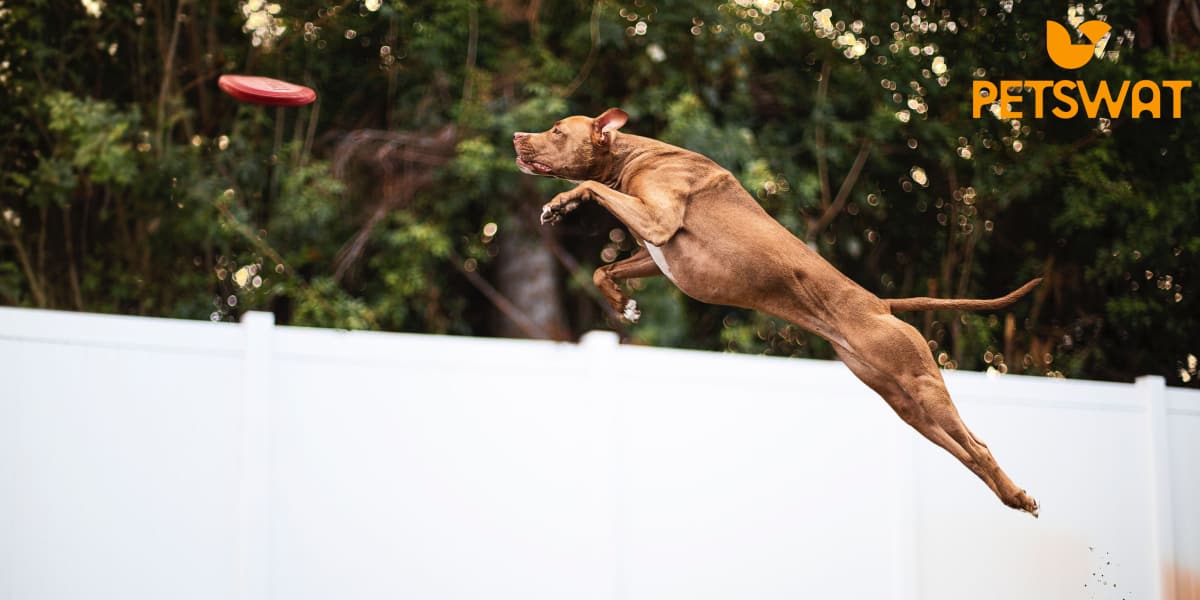Pitbulls are a breed of dog that is often associated with strength and athleticism. They have a reputation for being powerful and muscular, and their physical characteristics contribute to their impressive strength. How strong is a Pitbull?
There is more to pitbull strength than just their physical makeup. Factors such as genetics, hormones, exercise, and training all play a role in determining the strength of a pitbull. In this article, we will explore the various factors that contribute to pitbull strength and athleticism.
The anatomy of a pitbull: understanding their physical makeup
Pitbulls are known for their muscular build and athletic physique. They have a broad chest, strong shoulders, and a powerful neck. Their muscles are well-developed and give them the appearance of strength and power. Additionally, pitbulls have a unique jaw structure that allows them to exert a tremendous amount of force when biting down. This combination of physical characteristics contributes to their overall strength.
The muscles in a pitbull’s body are made up of different types of muscle fibers. There are two main types of muscle fibers: slow-twitch fibers and fast-twitch fibers. Slow-twitch fibers are responsible for endurance and are used during activities that require sustained effort, such as long-distance running. Fast-twitch fibers, on the other hand, are responsible for explosive power and are used during activities that require quick bursts of energy, such as sprinting or jumping.
Muscle fibers and the genetic makeup of pitbulls
The genetic makeup of pitbulls plays a significant role in determining their muscle fiber composition. Some dogs naturally have a higher percentage of fast-twitch muscle fibers, which gives them an advantage in terms of strength and power. Pitbulls are known to have a higher proportion of fast-twitch muscle fibers compared to other breeds, which contributes to their impressive strength.
Genetics also play a role in determining the size and density of a pitbull’s muscles. Some dogs are genetically predisposed to have larger and more developed muscles, which gives them a natural advantage in terms of strength. Pitbulls are known for their muscular build, and this is partly due to their genetic makeup.
The role of testosterone in pitbull strength
Testosterone is a hormone that plays a crucial role in muscle growth and strength. It is responsible for increasing protein synthesis, which leads to the development of larger and stronger muscles. Pitbulls naturally have higher levels of testosterone compared to other breeds, which contributes to their impressive strength and athleticism.
The higher levels of testosterone in pitbulls can be attributed to their genetic makeup. Selective breeding has been used to enhance certain traits in pitbulls, including their strength and muscle development. This has resulted in pitbulls having higher levels of testosterone compared to other breeds.
The importance of exercise and conditioning for pitbulls
Regular exercise and conditioning are essential for maintaining the strength and overall health of pitbulls. Exercise helps to build and maintain muscle mass, improve cardiovascular fitness, and increase endurance. It also helps to prevent obesity, which can negatively impact a dog’s overall health and strength.
When it comes to exercising pitbulls, it is important to provide them with activities that challenge their physical abilities. This can include activities such as running, swimming, agility training, and playing fetch. It is also important to vary the types of exercises to target different muscle groups and prevent boredom.
In addition to regular exercise, conditioning is also important for maintaining pitbull strength. Conditioning exercises focus on building endurance and improving overall fitness. This can include activities such as interval training, hill sprints, and resistance training.
The impact of diet and nutrition on pitbull strength
Proper nutrition is essential for supporting muscle growth and strength in pitbulls. A balanced diet that is rich in high-quality protein is crucial for building and repairing muscles. Protein provides the necessary amino acids that are needed for muscle growth and repair.
In addition to protein, pitbulls also require a balanced diet that includes carbohydrates, fats, vitamins, and minerals. Carbohydrates provide energy for exercise and physical activity, while fats provide essential fatty acids that are important for overall health. Vitamins and minerals are necessary for various bodily functions, including muscle function and recovery.
It is important to feed pitbulls a diet that is appropriate for their age, size, and activity level. Consulting with a veterinarian or a canine nutritionist can help ensure that pitbulls are receiving the proper nutrition to support their strength and overall health.
The psychology of pitbulls: how their temperament affects their strength
Pitbulls have a unique temperament that can contribute to their strength in certain situations. They are known for their loyalty, protectiveness, and determination. These traits can make them highly focused and driven when it comes to tasks that require strength and physical exertion.
Pitbulls are also known for their high pain tolerance, which can contribute to their strength in certain situations. They are less likely to back down or give up when faced with physical challenges or obstacles. This determination and resilience can make them formidable in terms of strength.
However, it is important to note that a pitbull’s temperament alone does not determine their strength. Proper training and socialization are essential for ensuring that pitbulls can channel their strength in a positive and controlled manner.
The history of pitbull breeding and its impact on their strength
The history of pitbull breeding has had a significant impact on the strength and athleticism of the breed. Pitbulls were originally bred for dogfighting, which required them to be strong, agile, and tenacious. Selective breeding was used to enhance these traits, resulting in the development of a breed that is known for its strength and athleticism.
Over the years, pitbulls have been bred for various purposes, including hunting, herding, and protection. Each of these purposes required different physical abilities, which further contributed to the development of the breed’s strength and athleticism.
It is important to note that dogfighting is illegal in many countries, and responsible breeders focus on breeding pitbulls for their positive traits, such as their loyalty, intelligence, and trainability. It is crucial to support responsible breeding practices and promote the well-being of pitbulls.
The role of adrenaline in pitbull strength during moments of stress or danger
Adrenaline is a hormone that is released by the body in response to stress or danger. It triggers the body’s fight-or-flight response, which prepares the body for physical exertion. Adrenaline increases heart rate, blood flow, and oxygen delivery to the muscles, which can enhance strength and performance.
Pitbulls, like all dogs, have a natural instinct to protect themselves and their loved ones. When faced with a threatening situation, pitbulls may experience an adrenaline rush that can increase their strength and aggression. This can make them even more formidable in terms of strength.
It is important to note that adrenaline should not be relied upon as a means to enhance a pitbull’s strength. Proper training and socialization are essential for ensuring that pitbulls can respond appropriately to stressful or dangerous situations.
The impact of training and socialization on pitbull strength
Training and socialization play a crucial role in determining a pitbull’s strength and behavior. Proper training helps to develop a strong bond between the owner and the dog, as well as establish clear boundaries and expectations. It also helps to channel a pitbull’s energy and strength in a positive and controlled manner.
Socialization is equally important for pitbulls. It involves exposing them to various people, animals, and environments from a young age, which helps them develop good manners and appropriate behavior. Socialization also helps to build confidence and reduce fear or aggression towards unfamiliar situations.
Proper training and socialization can help pitbulls become well-rounded and balanced dogs. It can also help prevent behavioral issues that may arise from a lack of exercise or mental stimulation. By providing pitbulls with the necessary training and socialization, their strength can be channeled in a positive and controlled manner.
Comparing pitbull strength to other dog breeds: what sets them apart?
When it comes to strength and athleticism, pitbulls are often compared to other breeds such as German Shepherds and Rottweilers. While all three breeds are known for their strength, there are some differences that set pitbulls apart.
Pitbulls have a unique combination of physical characteristics, genetics, and temperament that contribute to their impressive strength. Their muscular build, high proportion of fast-twitch muscle fibers, and higher levels of testosterone give them a natural advantage in terms of strength. Additionally, their loyalty, protectiveness, and determination make them highly focused and driven when it comes to physical tasks.
German Shepherds are also known for their strength and athleticism. They have a strong and muscular build, as well as a high level of intelligence and trainability. German Shepherds are often used as working dogs in various fields such as search and rescue, police work, and protection.
Rottweilers are another breed that is known for their strength. They have a powerful build and a strong jaw structure. Rottweilers are often used as guard dogs due to their protective nature and physical strength.
While all three breeds are strong in their own right, pitbulls have a unique combination of physical characteristics, genetics, temperament, and history that sets them apart in terms of strength and athleticism.
Conclusion
Pitbulls are a breed of dog that is known for their strength and athleticism. Their physical characteristics, genetics, hormones, exercise, training, and socialization all play a role in determining their strength. Proper nutrition and conditioning are also important for maintaining pitbull strength and overall health.
It is important to remember that responsible ownership and care are crucial when it comes to pitbulls. They are a powerful breed that requires proper training, socialization, and care. By providing them with the necessary resources and guidance, pitbulls can thrive and showcase their impressive strength in a positive and controlled manner.
Originally posted 2023-05-04 04:09:50.
Johny is a dedicated pet enthusiast, author, and the driving force behind the insightful content at PetSWAT. With a deep passion for animals and a wealth of knowledge acquired through years of experience, Johny brings a unique perspective to the world of pet care and companionship.


